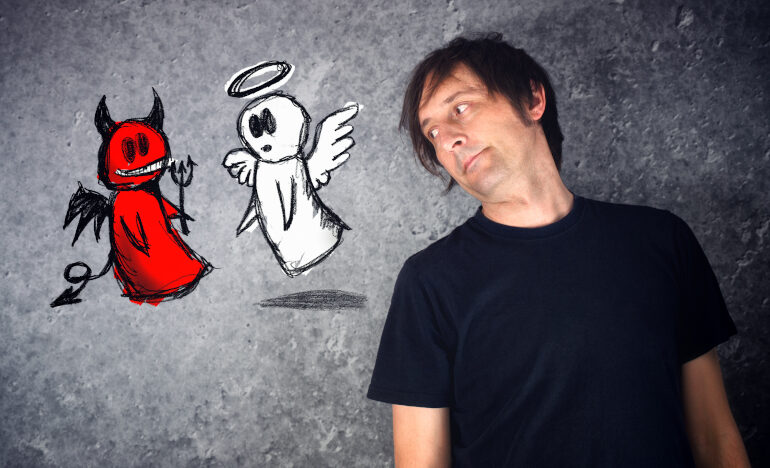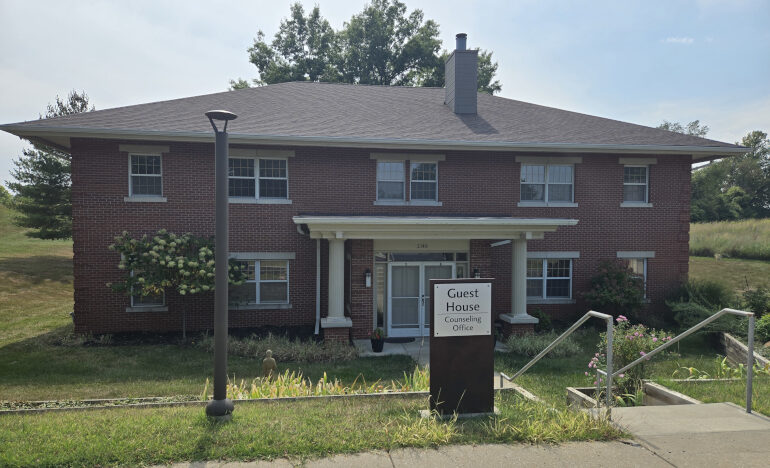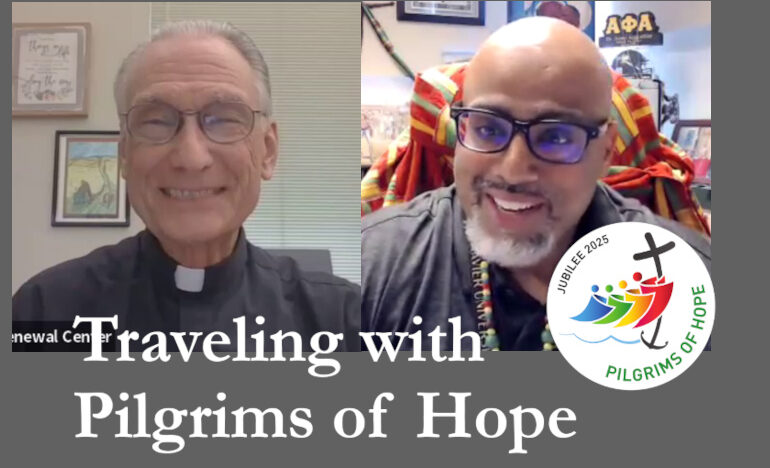Vices vs. Virtues

An Assembling God’s Puzzle video
By Fr. Garry Richmeier, C.PP.S.
A human being can be looked at as a puzzle, made up of many different puzzle pieces. Some pieces seem to fit, while others may look like they don’t belong. But all the pieces go into making the whole person.
Seemingly opposite puzzle pieces can be called Vices and Virtues. We can use different names for them, like strengths and weaknesses, bad habits and good habits, things we like about ourselves and things we don’t, presentable attributes and not so presentable attributes, things we’re embarrassed about and things we’re proud of, etc.
I’ll use the terms vices and virtues here to refer to all of that. As human beings, we can’t get away from the fact that we are a mixed bag of vices and virtues, and we have to figure out what to do with both.
Our virtues don’t usually cause us problems. They are like our best buddies. They help us succeed in life, and they help us have good relationships. We like to exhibit them and show them off, and they can make us popular. For example, the virtue of being efficient can help us get ahead in our job. The virtue of being a good listener can attract others to us. In traditional religious thinking, they are what get us into heaven.
Our virtues are what we show to the world to say “This is who I am.”
Our vices, on the other hand, cause us problems. Instead of treating them like a best friend, we often treat them as a crazy, embarrassing family member that we keep locked up in the basement. Our vices embarrass us, and invite ridicule and criticism from others. They can danger our physical and mental health, and can damage or end relationships. In traditional religious thinking, vices are what get us into hell.
So what we usually do is try to get rid of our vices in some way. We may say that our strong will can eliminate any effect of a vice, like when a person says they will simply eat less to lose weight, or an alcoholic says he will simply stop at one drink. This is really a denial of having the vice.
Or we may pretend we don’t have a vice, or push it down in our consciousness so we don’t have to think about it. But that is like pretending we don’t have a left hand, and the vice pops up in our lives when we least expect it.
When these strategies don’t work, and we find the vice is as persistent as ever, we are likely to recriminate and blame ourselves for being “bad.” This leads to a war with one’s self, the “good” part of me fighting against the “bad” part of me. Since there is no way to get rid of half myself, the war is never ending, and can lead to depression, anxiety, self-loathing, and even suicide. It also leads to us treating others in the same way, which leads to never-ending war with what is “bad” in others.
There are some ways to end or lessen this war within ourselves and make life more pleasant.
First of all, we have to honestly admit we have vices/weaknesses that can control our actions if left unchecked or ignored. This is the first step in the Twelve Step process of Alcoholics Anonymous.
We also need to recognize that being a mixture of vices and virtues is a normal fact of reality, and is neither good nor bad. This can relieve us of the temptation to be ashamed of ourselves and cover up or deny weaknesses.
Then we need to find ways to keep track of the vice. This entails figuring out when, where, and in what circumstance it is likely to crop up, and what it looks like when it does. It also means being familiar with my favorite ways of not wanting to pay attention to it.
Asking others to help me in this work can be good and can help me stay grounded in the process. If we can keep an eye on any particular vice to see where it is at, rather than ignoring or denying it, we can keep it from unexpectedly controlling our actions. This frees us up to make choices that work better for ourselves and others around us. It also helps us be more forgiving and compassionate with others because we know they are struggling in the same way we are.
Finally, we have to trust that God’s infinite forgiveness will be there when we fail. And that God will be giving us the wherewithal to accentuate our many virtues and reduce the effects of our vices. As with anything, we can’t do it alone.
All of the videos in this series can be found here: Assembly God’s Puzzle.
Never miss an article published on the Renewal Center website: Sign up to receive our newsletters.
[Fr. Garry Richmeier, a Precious Blood priest and spiritual director, holds a Master’s of Divinity Degree from St John’s University in Collegeville, Minnesota, and a Master’s of Counseling Psychology degree from the University of Missouri-Kansas City. He is a licensed professional counselor and a licensed marriage and family therapist.]
Related

Can You Help Support Our Guest House Mission?
The Missionaries of the Precious Blood, the religious society of priests and brothers who sponsor Precious Blood Renewal Center, are asking for donations to update and renovate the Renewal Center’s Guest House.

Pilgrims of Hope, Episode 8: Walking Outside Church Walls
Hosted by Fr. Ron Will, C.PP.S.
In this episode of the Jubilee Year video series, “Traveling with Pilgrims of Hope,” we talk with Ansel Augustine, M.Div., about his more than 25 years of ministry to youth, college students, prisoners and others travelling “outside the church walls.”
Categories
Assembling God's Puzzle Coffee with Padre Cooking & Spirituality Encounters of the 4th Kind Family Matters Reflections on the Eucharsitic Prayers Spiritual Resources Taize Prayers The Contemplative Life Traveling with Pilgrims of Hope Uncategorized Videos Week of Prayer for Christian Unity When you need a little help
